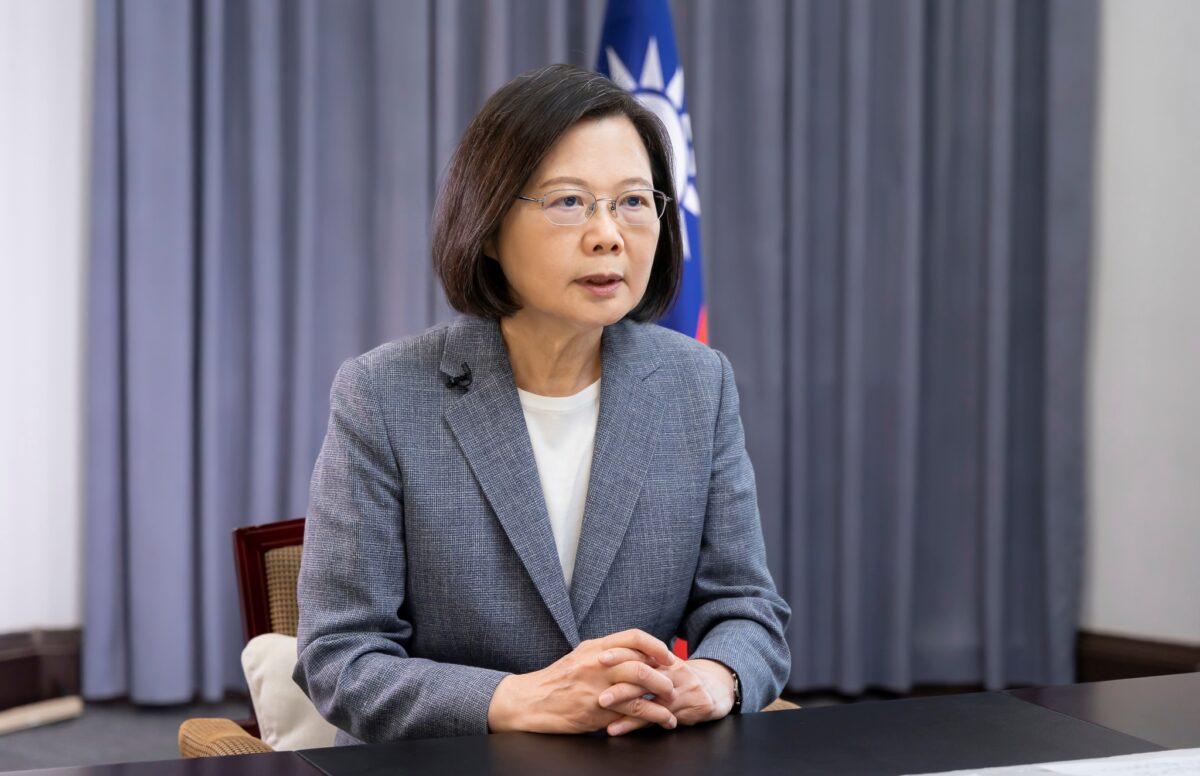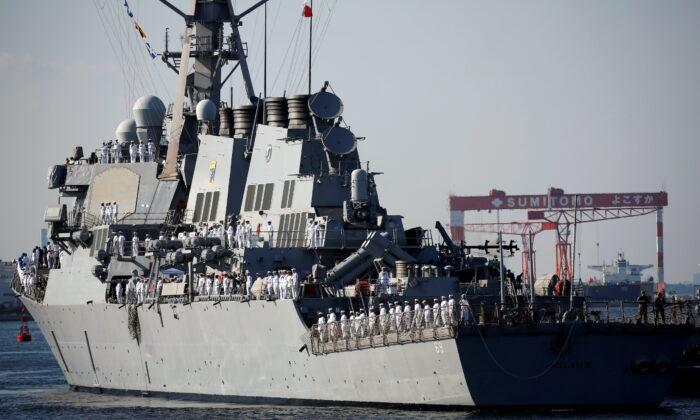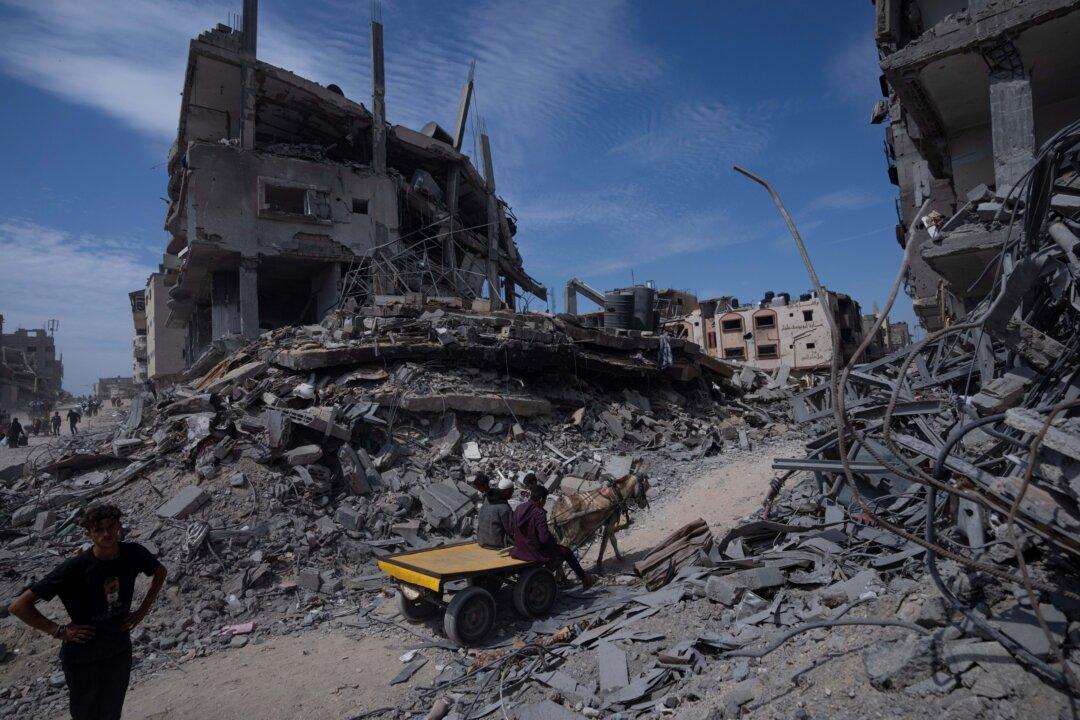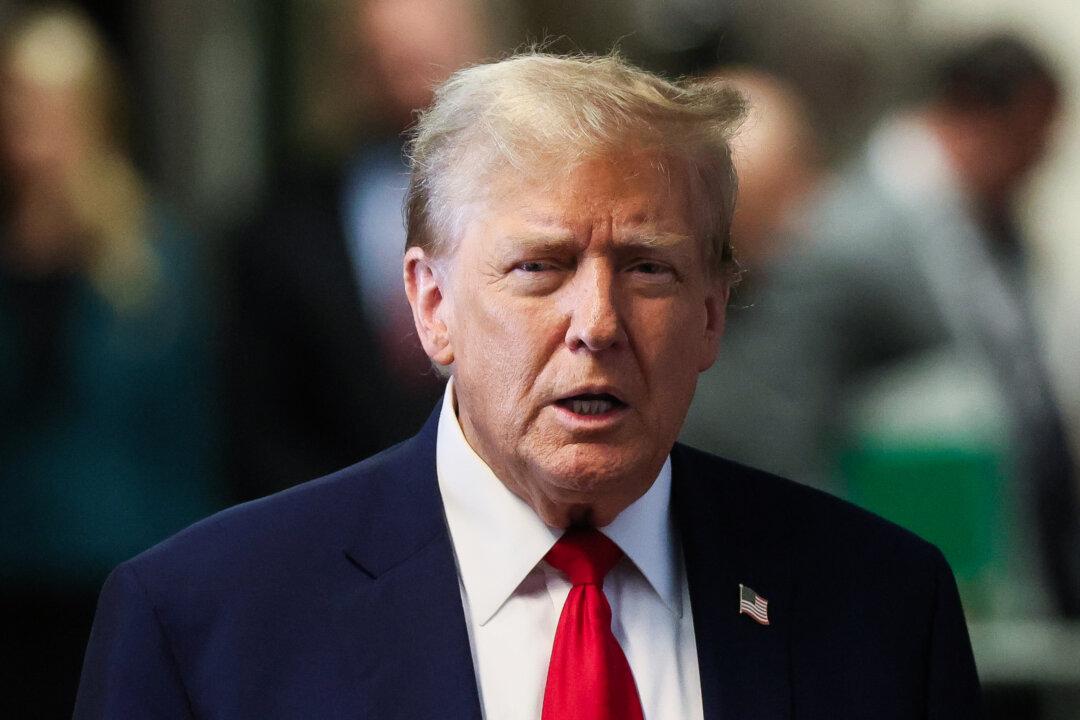The United States deployed the guided-missile destroyer USS Milius through the Taiwan Strait on April 16, just days after the Chinese military simulated precision strikes against Taiwan.
The Arleigh Burke-class guided-missile destroyer conducted “a routine Taiwan Strait transit” to demonstrate the U.S. commitment to a “free and open Indo-Pacific,” the U.S. Navy’s 7th Fleet said in a statement.
“The ship transited through a corridor in the Strait that is beyond the territorial sea of any coastal state,” it said. “The United States military flies, sails, and operates anywhere international law allows.”
The warship deployment immediately triggered a response from Beijing, which said it organized troops to monitor the U.S. warship’s operations and to maintain “a high level of alert at all times.”
Taiwan’s Defense Ministry said the Milius sailed through the Taiwan Strait from south to north.
“During the northward sailing of the U.S. warship through the Taiwan Strait, the national army kept abreast of the relevant developments in the surrounding sea and airspace, and the situation was normal,” it said.
The deployment came after Beijing launched a three-day military drill around Taiwan in response to Taiwanese President Tsai Ing-wen’s meeting with U.S. House Speaker Kevin McCarthy (R-Calif.) in California.
China’s state media reported that the military conducted simulated joint precision strikes on key targets in Taiwan and its surroundings.
Taiwan ‘Keeping a Close Watch’
Chinese aircraft incursions into the region continued despite the fact that the Chinese Communist Party (CCP) had already proclaimed the conclusion of its military exercise on April 10.Taiwan’s military said it detected 18 Chinese aircraft and four naval vessels near the island on April 16, with four aircraft spotted entering southwest and southeast of Taiwan’s ADIZ.

“As the president, I represent our country in the world, whether it’s a visit to allied countries or stopping through in the U.S. and interacting with our international friends, and not only has this been going on for years, it’s the Taiwanese people’s shared expectation,” Tsai said in a statement.
“But China used this as a pretext to start military drills, creating instability in the Taiwan Strait and region. This is not the attitude of a responsible major nation in this region,” she added.
The CCP regards Taiwan as a renegade province that must be united with the mainland by all means necessary despite the fact that Taiwan has never been ruled by the CCP and has its own democratic government.
Despite having only unofficial relations, the United States is Taiwan’s most important ally and source of military assistance. U.S. law requires Washington to regard all threats to the island—including a blockade—as matters of “grave concern,” although it does not explicitly require the commitment of forces.
By threatening military violence and repeatedly crossing the center line of the Taiwan Strait, he said, the CCP was undoubtedly violating 50 years of promises not to unilaterally seek to change the status quo regarding Taiwan.
“There comes a point when they’re going to cross a line and Taiwan is going to react, starting something that I am 100 percent sure that Beijing is not prepared—at this point—to start,” Stilwell told The Epoch Times.






Friends Read Free